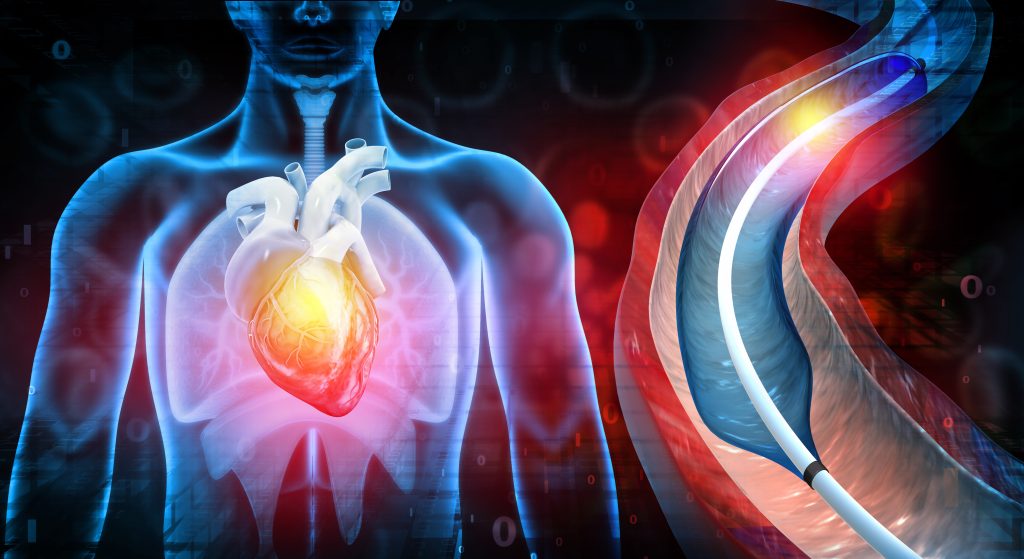What Cardiology reveals about managing high blood pressure
What Cardiology reveals about managing high blood pressure
Blog Article
Understanding the Significance of Cardiology in Modern Health Care Solutions
Cardiology plays an essential duty in modern healthcare, particularly as heart disease continues to be the leading reason for mortality worldwide. Advancements in diagnostics and treatment have transformed client care, enabling earlier interventions and improved outcomes. The shift towards preventive cardiology encourages people to handle their health and wellness proactively. As innovation remains to evolve, the assimilation of cutting-edge options may even more redefine cardiology's influence on public health, motivating a more detailed assessment of emerging fads and their effects.
The Occurrence of Heart Illness and Its Influence On Public Wellness
Heart disease continues to be the leading cause of fatality worldwide, its impact prolongs far past individual people to impact public wellness systems and economic climates. The high prevalence of cardiovascular disease positions a considerable strain on health care resources, requiring increased financing for rehabilitation, treatment, and avoidance programs. Public health efforts have to deal with threat factors such as weight problems, smoking cigarettes, and sedentary way of livings, which add significantly to the rising incidence of heart conditions.Moreover, the economic problem associated with heart problem is tremendous, encompassing not only straight clinical costs however likewise indirect expenditures associated with lost efficiency and early death. Communities face difficulties in handling these prices, frequently resulting in variations in medical care accessibility and outcomes. As the population ages and lifestyle-related risks continue to rise, the necessity for reliable cardiology treatments becomes paramount. As a result, attending to cardiovascular disease is not just an issue of private health and wellness yet additionally an essential public health priority.
Breakthroughs in Heart Diagnostics and Imaging Techniques
Current improvements in cardiac diagnostics and imaging techniques have revolutionized the area of cardiology, boosting the capability to discover and keep track of heart diseases. Strategies such as heart MRI, CT angiography, and echocardiography have become significantly innovative, supplying comprehensive photos of heart structures and functions. These methods permit the early recognition of conditions like coronary artery disease, heart failing, and valvular disorders.Moreover, improvements in non-invasive diagnostics, such as wearable technology and remote surveillance devices, have encouraged individuals and doctor. These devices help with real-time monitoring of heart rhythms and other important indicators, resulting in prompt interventions. In addition, expert system is being integrated right into imaging evaluation, enhancing precision and effectiveness in medical diagnosis.
Developments in Therapy Choices for Heart Issues
Recent improvements in cardiology have caused significant advancements in therapy options for heart problems. These consist of innovative surgical techniques that boost procedural outcomes and emerging medicines that provide brand-new opportunities for treatment. As the area advances, these technologies play an important duty in improving individual treatment and outcomes.
Advanced Surgical Techniques
Developments in surgical strategies have actually transformed the landscape of cardiology, providing brand-new wish for patients with heart disease. Minimally intrusive treatments, such as catheter-based treatments, have significantly minimized recuperation times and medical facility remains. Methods like robotic-assisted surgical procedure boost precision, allowing cosmetic surgeons to navigate complicated physiological frameworks with better precision. Improvements in imaging modern technology help with real-time visualization during procedures, improving results. Transcatheter aortic shutoff replacement (TAVR) exemplifies a breakthrough in dealing with aortic constriction, allowing valve replacement without open-heart surgical procedure. In addition, hybrid approaches that combine catheter-based and medical approaches supply tailored remedies for different cardiac concerns. These advanced surgical techniques not only improve person safety and security but also expand treatment options, underscoring the important duty of technology in contemporary cardiology techniques.
Emerging Medicines and Therapies
As the landscape of cardiology remains to progress, emerging medicines and therapies play a critical function in boosting therapy alternatives for heart conditions. Technologies such as unique anticoagulants and advanced lipid-lowering representatives have actually transformed the monitoring of cardiovascular illness, considerably decreasing individual morbidity and mortality. In addition, the advancement of genetics therapies and regenerative medication supplies encouraging methods for dealing with problems previously deemed incurable. Medical tests are continually revealing the effectiveness of these therapies, pushing the borders of conventional therapies. Furthermore, the combination of digital health technologies helps with personalized medicine, permitting tailored treatment strategies based on hereditary and way of life variables. Jointly, these improvements highlight the vibrant nature of cardiology, boosting person end results and redefining standards of care in contemporary medical care.
The Function of Preventive Cardiology in Individual Care
Preventative cardiology plays an important role in patient treatment by focusing on the recognition of danger aspects that contribute to heart disease. Through way of life modification approaches and very early discovery strategies, healthcare service providers can successfully lower the occurrence of cardiovascular events - Cardiology care. This proactive method not just enhances client end results yet also advertises lasting health
Threat Aspect Recognition
While heart diseases remain a leading source of morbidity and mortality worldwide, effective threat element recognition offers as a cornerstone of preventative cardiology. Determining danger aspects such as high blood pressure, family members, diabetes mellitus, and hyperlipidemia history is vital for early intervention. Medical care experts use different screening techniques to evaluate these variables, permitting customized safety nets. Additionally, understanding an individual's way of living selections, such as smoking cigarettes and physical inactivity, even more informs danger analyses. This extensive assessment makes it possible for medical professionals to establish individualized treatment strategies focused on mitigating threats. By focusing on risk element recognition, medical care systems can improve individual results and minimize the overall burden of heart diseases, inevitably contributing to enhanced public health and wellness strategies and source allocation.
Lifestyle Adjustment Approaches
A multitude of research studies highlights the important function of lifestyle alteration methods in lowering cardiovascular illness danger. These techniques encompass nutritional adjustments, raised exercise, smoking cessation, and weight management. By embracing a heart-healthy diet plan rich in fruits, veggies, whole grains, and lean proteins, people can decrease cholesterol levels and high blood pressure. Normal physical activity reinforces the heart and enhances overall cardiovascular health and wellness. Additionally, stopping smoking cigarettes significantly reduces the threat of heart disease and enhances healing prices for those with status quo. Weight monitoring better adds to cardio health by reducing various other threat factors such as diabetic issues and high blood pressure. Implementing these lifestyle alters not just advertises private well-being however additionally works as a foundation of precautionary cardiology in person care.
Very Early Discovery Methods
Way of living adjustments considerably add to decreasing cardiovascular condition threats, but they are most effective when combined with very early discovery techniques. Preventive cardiology stresses the relevance of recognizing possible heart issues before they rise right into severe problems. Strategies such as high blood pressure tracking, cholesterol testing, and advanced imaging modern technologies like echocardiograms play essential functions in assessing cardiovascular health. Biomarkers and hereditary testing also boost the precision of very early detection, enabling for tailored precautionary strategies. Normal cardiac threat analyses encourage doctor to intervene proactively, possibly protecting against heart strikes and strokes (Cardiology). By incorporating these very early detection methods right into routine treatment, patients can take advantage of prompt way of life interventions and targeted treatments, eventually boosting end results and enhancing lifestyle
Integrating Innovation Into Cardiology Practices
As innovations in innovation continue to improve numerous fields, the assimilation of ingenious devices and systems right into cardiology methods has actually become important for boosting patient treatment and results. Telemedicine platforms permit cardiologists to keep track of people remotely, improving access to care while lowering the burden on medical care facilities. Wearable gadgets, such as smartwatches, enable continual heart rate surveillance, signaling both medical professionals and individuals to prospective concerns in real-time. Additionally, man-made intelligence (AI) is being utilized to assess large quantities of cardiac information, assisting in early diagnosis and tailored treatment strategies. Advanced imaging strategies, including 3D echocardiography, improve visualization of heart structures, causing extra precise treatments. Digital health records (EHRs) enhance client info management, making sure that cardiologists have immediate accessibility to vital information. With each other, these technological advancements are transforming cardiology, advertising aggressive monitoring and enhanced health and wellness results for individuals with cardio conditions.
The Importance of Client Education And Learning and Engagement
Client education and engagement play a pivotal duty in the monitoring of cardio wellness. By outfitting individuals with knowledge concerning their conditions, treatment choices, and way of living adjustments, doctor encourage people to take an active role in their treatment. This proactive method can cause enhanced adherence to suggested medications, nutritional changes, and exercise regimens, ultimately decreasing the danger of complications.Engagement likewise promotes a solid patient-provider connection, encouraging open interaction and count on. When people feel notified and entailed, they are most likely to voice issues and ask questions, which can cause far better clinical end results. Furthermore, academic sources, such as workshops or digital systems, can enhance understanding and advertise self-management strategies. On the whole, focusing on individual education and learning and involvement is important for enhancing cardio health, improving lifestyle, and reducing healthcare costs connected with heart diseases.
Future Patterns in Cardiology and Their Potential Impact

Regularly Asked Questions
What Lifestyle Changes Can Reduce Cardiovascular Disease Danger?
The current concern addresses lifestyle modifications that can substantially lower heart illness threat. Cardiology care. Embracing a balanced diet, participating in routine physical task, keeping a healthy weight, managing anxiety, and staying clear of tobacco can significantly boost cardio health and wellness
Just How Can I Identify Early Indications of Heart Troubles?
Recognizing very early signs of heart troubles includes tracking symptoms such as breast pain, shortness of breath, exhaustion, and uneven heart beat. Prompt awareness of these signs can trigger needed clinical examination and intervention for far better end results.
What Are the Distinctions Between Cardiologists and Heart Surgeons?
The distinctions between cardiologists and heart specialists exist in their roles; cardiologists mostly diagnose and take care of heart conditions with non-invasive approaches, while heart surgeons carry out operations to remedy architectural heart issues. Each plays an important, distinct duty.

Exactly how Usually Should I Obtain My Heart Wellness Checked?
The frequency of heart medical examination varies based on private risk aspects. Normally, grownups need to undertake analyses each to 2 years, while those with present conditions might require even more regular analyses as advised by health care professionals.
What Duty Does Genetics Play in Cardiovascular Disease Threat?
Genetics greatly affects heart problem danger, with familial patterns indicating acquired problems. Particular genetics can incline individuals to hypertension, cholesterol concerns, and other cardiovascular problems, highlighting the relevance of genetic screening in assessing heart wellness. Heart condition stays the leading reason of fatality worldwide, its influence expands far past individual people to impact public health systems and economies. Public wellness efforts should address threat aspects such as excessive weight, smoking cigarettes, and sedentary way of lives, which add substantially to the climbing occurrence of heart conditions.Moreover, the financial concern linked with heart illness is enormous, encompassing not just direct medical costs however additionally indirect expenditures connected to lost redirected here efficiency and premature mortality. Preventative cardiology plays a vital duty in client care by focusing on the recognition of risk aspects that contribute to heart illness. Artificial intelligence (AI) and equipment discovering are boosting diagnostics and individual surveillance, allowing very early discovery of heart illness. The differences in between cardiologists and cardiac cosmetic surgeons exist in their roles; cardiologists mainly identify and handle heart problems via non-invasive methods, while cardiac surgeons do medical treatments to correct architectural heart concerns.
Report this page